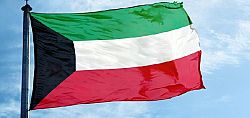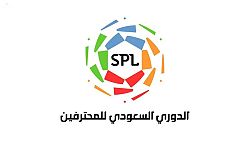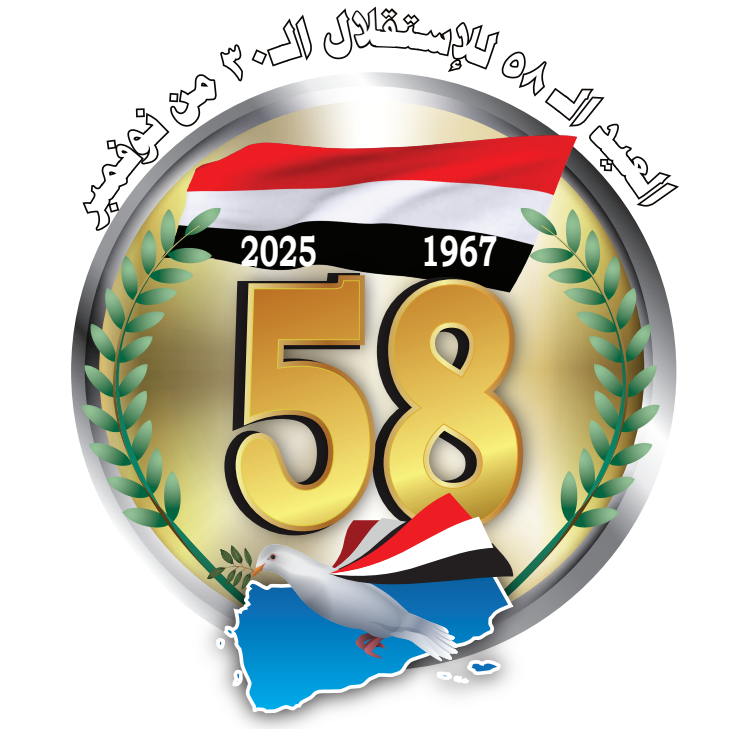
Yemen Announces Full Support for Statement Issued by GCC Ministerial Meeting
The Republic of Yemen has announced its full support for the statement issued at the extraordinary ministerial meeting of the Gulf Cooperation Council (GCC), which affirmed a unified and firm position to deter what it described as blatant Iranian aggression against GCC member states.

Kuwait Condemns Iranian Attack Targeting Its Territory
The State of Kuwait has strongly condemned a “heinous Iranian attack” that targeted its territory on Saturday morning, calling it a flagrant violation of Kuwait’s sovereignty, airspace, international law, and the Charter of the United Nations.

Korea large companies' exports rise 10 percent
Large companies' exports in South Korea rose approximately 10 percent year-on-year in the fourth quarter of last year, driven by increased global demand for semiconductors.

Saudi League: Al-Nassr, Al-Ettifaq and Neom Secure Victories Over Al-Ittihad, Damac and Al-Riyadh
Al-Nassr defeated its guest Al-Ittihad 2–0 in the match that brought them together at Al-Awwal Park Stadium in Riyadh, as part of the 21st round of the Saudi Professional League.
Last Update: ،
2026/03/02
Time
08:44:13
Latest News:
 Marib Deputy Governor Discusses Humanitarian Interventions with Turkish Associations
Marib Deputy Governor Discusses Humanitarian Interventions with Turkish Associations
 Cabinet approves draft budget for fiscal year 2026
Cabinet approves draft budget for fiscal year 2026
 Finance Minister signs with Ambassador al-Jaber new Saudi support agreement for Yemen
Finance Minister signs with Ambassador al-Jaber new Saudi support agreement for Yemen
 Prime Minister Receives Letter from Italian Deputy Prime Minister
Prime Minister Receives Letter from Italian Deputy Prime Minister
 Yemen Strongly Condemns Blatant Iranian Attacks on Saudi Arabia
Yemen Strongly Condemns Blatant Iranian Attacks on Saudi Arabia
Latest News:
 Marib Deputy Governor Discusses Humanitarian Interventions with Turkish Associations
Marib Deputy Governor Discusses Humanitarian Interventions with Turkish Associations
 Cabinet approves draft budget for fiscal year 2026
Cabinet approves draft budget for fiscal year 2026
 Finance Minister signs with Ambassador al-Jaber new Saudi support agreement for Yemen
Finance Minister signs with Ambassador al-Jaber new Saudi support agreement for Yemen
 Prime Minister Receives Letter from Italian Deputy Prime Minister
Prime Minister Receives Letter from Italian Deputy Prime Minister
 Yemen Strongly Condemns Blatant Iranian Attacks on Saudi Arabia
Yemen Strongly Condemns Blatant Iranian Attacks on Saudi Arabia
Houthi-Saleh coup caused deterioration of situation in Yemen, official affirms
[22/08/2017 03:15]
NEWYORK-SABA
Yemen Local Administration Minister has affirmed that the situation in Yemen deteriorated due to the military coup carried out by the Houthi-Saleh militias against the legitimate government led by President Abdu Rabbu Mansour Hadi.
He affirmed, in a speech delivered in a symposium arranged by Yemen and Saudi Arabia missions to the United Nations in New York, that the solid diagnosis of Yemen's crisis is a key to a comprehensive resolution.
In the symposium entitled "partners for the sake of permanent peace in Yemen", Fatah spelt out that the militias staged a war against references of the National Dialogue Conference, refused the GCC-brokered initiative and the UNSC resolutions on Yemen, causing the deteriorated humanitarian situation.
He explained that 20.000.000 Yemenis need humanitarian assistances, 10.300.000 Yemenis are in an urgent need to assistances, 14.400.000 persons lack drinking water and sanitation, 14.100.000 lack food, 14.800.000 persons need essential health care, 4.500.000 persons suffer from malnutrition, 1.700.000 children and women suffer from cute malnutrition, 11.300.000 IDPs need protection, 4.5 IDPs lack shelters, 463.275 are infected with watery diarrhea (cholera), 3.400.000 pupils could not join schools, and 10,811 civilians were killed and 64,850 others were wounded.
He hailed efforts exerted by the UN organizations in Yemen, affirming that they work in the fields of relief and control of cholera, emphasizing that these organizations receive all support and facilities from the Yemeni government and Yemen's Higher Committee for Relief.
The minister noted that the legitimate government demands donors and organizations to provide relief and assistances, but some assistances are still distributed by the militias, stressing the importance of distribution relief and assistances from governorates and ports run by the government, not from ports run by the militias.
Fatah mentioned that the Arab Coalition's countries led by Saudi Arabia and the United Arab Emirates provided relief aids through the King Salman Center for Relief and Humanitarian Aids, the UAE Red Crescent, the Kuwaiti Relief Committee to all governorates without any conditions.
He explained that the King Salman Center for Relief and Humanitarian Aids could provide food assistances and medicines for Taiz and Sa'ada, and that the UAE Red Crescent and the Kuwaiti Relief Committee covered most Yemeni governorates.
The minister affirmed that the Higher Committee for Relief had suggested the application of decentralization in the relief work through dividing Yemen into five relief centers.
Yemen Local Administration Minister has affirmed that the situation in Yemen deteriorated due to the military coup carried out by the Houthi-Saleh militias against the legitimate government led by President Abdu Rabbu Mansour Hadi.
He affirmed, in a speech delivered in a symposium arranged by Yemen and Saudi Arabia missions to the United Nations in New York, that the solid diagnosis of Yemen's crisis is a key to a comprehensive resolution.
In the symposium entitled "partners for the sake of permanent peace in Yemen", Fatah spelt out that the militias staged a war against references of the National Dialogue Conference, refused the GCC-brokered initiative and the UNSC resolutions on Yemen, causing the deteriorated humanitarian situation.
He explained that 20.000.000 Yemenis need humanitarian assistances, 10.300.000 Yemenis are in an urgent need to assistances, 14.400.000 persons lack drinking water and sanitation, 14.100.000 lack food, 14.800.000 persons need essential health care, 4.500.000 persons suffer from malnutrition, 1.700.000 children and women suffer from cute malnutrition, 11.300.000 IDPs need protection, 4.5 IDPs lack shelters, 463.275 are infected with watery diarrhea (cholera), 3.400.000 pupils could not join schools, and 10,811 civilians were killed and 64,850 others were wounded.
He hailed efforts exerted by the UN organizations in Yemen, affirming that they work in the fields of relief and control of cholera, emphasizing that these organizations receive all support and facilities from the Yemeni government and Yemen's Higher Committee for Relief.
The minister noted that the legitimate government demands donors and organizations to provide relief and assistances, but some assistances are still distributed by the militias, stressing the importance of distribution relief and assistances from governorates and ports run by the government, not from ports run by the militias.
Fatah mentioned that the Arab Coalition's countries led by Saudi Arabia and the United Arab Emirates provided relief aids through the King Salman Center for Relief and Humanitarian Aids, the UAE Red Crescent, the Kuwaiti Relief Committee to all governorates without any conditions.
He explained that the King Salman Center for Relief and Humanitarian Aids could provide food assistances and medicines for Taiz and Sa'ada, and that the UAE Red Crescent and the Kuwaiti Relief Committee covered most Yemeni governorates.
The minister affirmed that the Higher Committee for Relief had suggested the application of decentralization in the relief work through dividing Yemen into five relief centers.
Key words:
decentralization - Administration - comprehensive - SABA Yemen - organizations - Humanitarian - malnutrition - distribution - governorates - deteriorated - Cabinet approves draft budget for fiscal year 2026
Cabinet approves draft budget for fiscal year 2026 Finance Minister signs with Ambassador al-Jaber new Saudi support agreement for Yemen
Finance Minister signs with Ambassador al-Jaber new Saudi support agreement for Yemen Yemen Strongly Condemns Blatant Iranian Attacks on Saudi Arabia
Yemen Strongly Condemns Blatant Iranian Attacks on Saudi Arabia  Republic of Yemen Condemns Iranian Attacks on Several Sisterly States
Republic of Yemen Condemns Iranian Attacks on Several Sisterly States Prime Minister Receives Letter from UNESCO Director-General
Prime Minister Receives Letter from UNESCO Director-General International Association (Al-Ameen) Provides over 9,000 Medical Services During January 2026
International Association (Al-Ameen) Provides over 9,000 Medical Services During January 2026 President al-Alimi Congratulates Dominican Republic on its Independence Anniversary
President al-Alimi Congratulates Dominican Republic on its Independence Anniversary PM Orders Immediate Payment of Salaries for Civil Servants, Military Personnel
PM Orders Immediate Payment of Salaries for Civil Servants, Military Personnel President Al-Alimi: New Saudi Support is Additional Message of Promising Strategic Partnership
President Al-Alimi: New Saudi Support is Additional Message of Promising Strategic Partnership Prime Minister Expresses Deep Appreciation for New Saudi Support
Prime Minister Expresses Deep Appreciation for New Saudi Support


